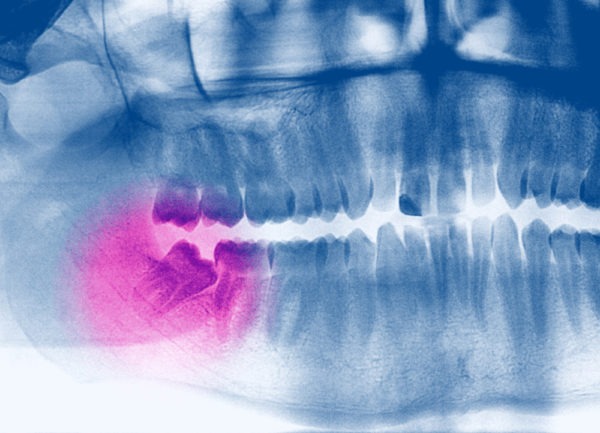Braces and Invisalign straighten your smile and improve your bite over the course of months or years. After investing all that time, you don’t want your orthodontist’s best efforts thwarted by your wisdom teeth!
While this is a rational concern, the truth is far less scary. Whether your wisdom teeth will affect your orthodontic treatment depends on your individual situation.
Understanding Wisdom Teeth
Wisdom teeth, also called third molars, are the teeth in the back corners of your mouth that start emerging between the ages of 17 and 21. They are unusual compared to other teeth because:
- They start growing at age 7
- They don’t serve any real purpose
Wisdom teeth may have been useful to our ancestors thousands of years ago because they had bigger mouths and harsher diets. However, now that humans’ jaws have shrunken and our diets have transitioned to softer foods, wisdom teeth tend to be a nuisance rather than a survival tool.
Wisdom Teeth Removal
It is standard practice to remove wisdom teeth in the late teens and early twenties, and about 85 percent of people need an extraction, although the surgery is not necessary for everyone. The purpose of removing wisdom teeth is to:
- Alleviate immediate pain or infection, or
- Reduce the likelihood of dental problems in the future
Your dentist or orthodontist may recommend removal depending on how your third molars have grown. Wisdom teeth can be:
- Impacted – trapped in the gums
- Partially erupted – partly visible and partly hidden beneath the gums
- Fully erupted – completely grown in
An oral surgeon may recommend removing impacted wisdom teeth to prevent pain, infection, tumors and cysts down the road. Teeth that have only come in partway pose a risk for bacterial infection since they are hard to clean. Both can open your body up to jawbone problems and periodontal disease.
Even fully erupted wisdom teeth can cause issues. It can be difficult to brush and floss between wisdom teeth because they are so far back in the mouth, increasing your risk for tooth decay.
Wisdom Teeth and Orthodontic Treatment
The optimal age for kids to get braces is somewhere between 8 and 14 – far before wisdom teeth come in. By contrast, Invisalign patients are typically older and may have already undergone wisdom tooth extraction.
This means orthodontic treatment rarely aligns well with wisdom tooth removal. Does this mean you should postpone or skip getting braces? Not necessarily!
If you’re an older teen or adult, it may be harder to realign your smile if your wisdom teeth are taking up too much space in your mouth. Your orthodontist will perform an X-ray before fitting you for Invisalign or braces and explain if wisdom teeth are a concern.
If your child is getting braces, it’s highly unlikely that their smile will be ruined when their wisdom teeth grow in. Teeth shifting is often mistakenly attributed to wisdom teeth when aging is to blame. Wearing a retainer is usually sufficient to prevent movement. Your orthodontist can also monitor your child’s teeth after removing their braces to watch for signs of crowding.
On the off chance your wisdom teeth erupt during treatment, you can still wear braces or Invisalign. You may have to take a short break from aligners to allow the area to heal, but it shouldn’t affect your progress.
Getting Braces or Invisalign With Serrano Orthodontics
Your smile is one of the first features people notice, and orthodontic care is a significant investment, so we understand why you’re concerned about treatment results. At Serrano Orthodontics, you can rest assured that Drs. Paul and Andrew Serrano will take the time to X-ray your teeth and explain how your wisdom teeth could affect alignment.
We offer several orthodontic options to our patients, including:
- Stainless steel Victory Series Low Profile brackets
- Inconspicuous ceramic Clarity braces
- See-through Invisalign aligners
Schedule your first appointment today by calling our Phoenix office at (602) 274-7840 or our Chandler office at (480) 899-1633.
